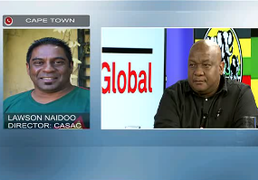MANDELA may well be the most recognised name in the world. As a brand, the name of South Africa’s first democratic president can sell just about anything, and in the aftermath of his death on Thursday at the age of 95, it is more valuable than ever.
Mandela’s former lawyer, Ismail Ayob, once said that as a brand, the name was second only to Coca-Cola — and he should know, having been implicated in dishonesty regarding the funds received from the sale of handprints of and paintings by the former president. (Coca-Cola this year lost its place as the world’s most valuable brand, falling to third behind Apple and Google.)
There has been no official value put on Mandela’s brand, but some pundits put it alongside that of Britain’s monarchy, estimated to be worth more of £44.5bn (R754bn) a few years back.
From selling paintings, T-shirts and wine to starring in a reality TV show about “being Mandela”, those born with the Mandela surname have almost invariably sought to cash in on it.
According to brand analyst Chris Moerdyk, the massive brand equity will not last much longer if it keeps on being used to flog goods and services unrelated to the former president’s legacy.
The Nelson Mandela Foundation in 2009 tried to put the brakes on people using his name or image for commercial gain.
It developed a code of conduct signed by his four official charities — the Nelson Mandela Foundation, the Nelson Mandela Children’s Fund, the Mandela Rhodes Foundation and the Nelson Mandela Institute for Education.
All other charities that bear his name, or of which he is a patron, had to get express permission from the foundation before using his image.
But the name cannot be absolutely protected and this will most likely erode its value.
Roger Sinclair, MD of brand valuation consultancy BrandMetrics, said that, as happened with Winston Churchill, Mandela’s name is in the hands of others and its integrity is unlikely to remain intact.
The ANC’s “ownership” of Mandela will affect the brand variously, depending on how the party is perceived.
Factors such as the behaviour and reputation of individual Mandela family members, public family rifts, and the use of the name to gain entry into business would also affect brand equity, Sinclair said.
Stefan Siedentopf, senior strategist at Ogilvy, said that for a brand to retain its integrity, it is essential its core values and narrative are kept absolutely sacrosanct and are upheld at every point of public contact.
But the Mandela brand is difficult to control. The art that was meant to benefit the Mandela Trust ended up in a legal wrangle in 2005 when Mandela and Ayob parted ways.
The issue reared its head again this year as the Mandela daughters publicly wrestled the trustees — including advocate George Bizos, whose history is inextricably linked to Mandela’s — for the cash.
In time, associations with the name will increasingly be with these grubby antics rather than the dignified man who united a nation many believed was on the verge of civil war.
The barrage of news about Mandla Mandela in recent months will do the brand no good, having associated it with bigamy, grave-tampering and, most recently, assault.
Mr Moerdyk made the analogy with Brand South Africa.
“After 1994, everybody loved us,” he said. “The nascent democracy had negotiated transition better than anyone could have hoped, the constitution was world-beatingly progressive and both Mandela and FW de Klerk had been given the Nobel Peace Prize. We had won the 1995 Rugby World Cup — we were the ‘Rainbow Nation’”.
But brand South Africa could not sell much at the moment; the name is now associated with Nkandla, Marikana and even the appalling scourge of baby rape.
Mr Sinclair said that in the short term, Mandela would be revered. In all likelihood, he said, a raft of books will be published describing him in hallowed terms. But after a while it will make much greater commercial sense to dig up some dirt, to portray him as a fallible — even very fallible— human being. Ultimately, as happened with Churchill, he might even be reviled in some quarters.
The Mandela brand is also not a single entity.
Mr Siedentopf said that, as with many major brands, Mandela has a brand architecture, a portfolio of sub-brands below the “mother” brand.
As well as the four main charities, there are a further 44 that use Madiba’s name. There is also the association with 46664, Mandela’s prison number.
But, more remotely, the name has been affixed to everything from bridges, roads, songs, sporting events, and even the South African currency.
Mr Siedentopf said these sub-brands enabled connections to be made with audiences distinct from those of the mother brand.
While all these sub-brands and enclaves in the architecture work to spread his name and garner support and funds for various enterprises, control is patchy at best.
• This article was first published in Sunday Times: Business Times
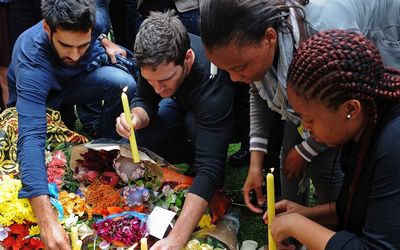
Mourners light candles in tribute to former president Nelson Mandela outside his home in Houghton, Johannesburg, on Friday. Picture: GCIS
MANDELA may well be the most recognised name in the world. As a brand, the name of South Africa’s first democratic president can sell just about anything, and in the aftermath of his death on Thursday at the age of 95, it is more valuable than ever.
Mandela’s former lawyer, Ismail Ayob, once said that as a brand, the name was second only to Coca-Cola — and he should know, having been implicated in dishonesty regarding the funds received from the sale of handprints of and paintings by the former president. (Coca-Cola this year lost its place as the world’s most valuable brand, falling to third behind Apple and Google.)
There has been no official value put on Mandela’s brand, but some pundits put it alongside that of Britain’s monarchy, estimated to be worth more of £44.5bn (R754bn) a few years back.
From selling paintings, T-shirts and wine to starring in a reality TV show about “being Mandela”, those born with the Mandela surname have almost invariably sought to cash in on it.
According to brand analyst Chris Moerdyk, the massive brand equity will not last much longer if it keeps on being used to flog goods and services unrelated to the former president’s legacy.
The Nelson Mandela Foundation in 2009 tried to put the brakes on people using his name or image for commercial gain.
It developed a code of conduct signed by his four official charities — the Nelson Mandela Foundation, the Nelson Mandela Children’s Fund, the Mandela Rhodes Foundation and the Nelson Mandela Institute for Education.
All other charities that bear his name, or of which he is a patron, had to get express permission from the foundation before using his image.
But the name cannot be absolutely protected and this will most likely erode its value.
Roger Sinclair, MD of brand valuation consultancy BrandMetrics, said that, as happened with Winston Churchill, Mandela’s name is in the hands of others and its integrity is unlikely to remain intact.
The ANC’s “ownership” of Mandela will affect the brand variously, depending on how the party is perceived.
Factors such as the behaviour and reputation of individual Mandela family members, public family rifts, and the use of the name to gain entry into business would also affect brand equity, Sinclair said.
Stefan Siedentopf, senior strategist at Ogilvy, said that for a brand to retain its integrity, it is essential its core values and narrative are kept absolutely sacrosanct and are upheld at every point of public contact.
But the Mandela brand is difficult to control. The art that was meant to benefit the Mandela Trust ended up in a legal wrangle in 2005 when Mandela and Ayob parted ways.
The issue reared its head again this year as the Mandela daughters publicly wrestled the trustees — including advocate George Bizos, whose history is inextricably linked to Mandela’s — for the cash.
In time, associations with the name will increasingly be with these grubby antics rather than the dignified man who united a nation many believed was on the verge of civil war.
The barrage of news about Mandla Mandela in recent months will do the brand no good, having associated it with bigamy, grave-tampering and, most recently, assault.
Mr Moerdyk made the analogy with Brand South Africa.
“After 1994, everybody loved us,” he said. “The nascent democracy had negotiated transition better than anyone could have hoped, the constitution was world-beatingly progressive and both Mandela and FW de Klerk had been given the Nobel Peace Prize. We had won the 1995 Rugby World Cup — we were the ‘Rainbow Nation’”.
But brand South Africa could not sell much at the moment; the name is now associated with Nkandla, Marikana and even the appalling scourge of baby rape.
Mr Sinclair said that in the short term, Mandela would be revered. In all likelihood, he said, a raft of books will be published describing him in hallowed terms. But after a while it will make much greater commercial sense to dig up some dirt, to portray him as a fallible — even very fallible— human being. Ultimately, as happened with Churchill, he might even be reviled in some quarters.
The Mandela brand is also not a single entity.
Mr Siedentopf said that, as with many major brands, Mandela has a brand architecture, a portfolio of sub-brands below the “mother” brand.
As well as the four main charities, there are a further 44 that use Madiba’s name. There is also the association with 46664, Mandela’s prison number.
But, more remotely, the name has been affixed to everything from bridges, roads, songs, sporting events, and even the South African currency.
Mr Siedentopf said these sub-brands enabled connections to be made with audiences distinct from those of the mother brand.
While all these sub-brands and enclaves in the architecture work to spread his name and garner support and funds for various enterprises, control is patchy at best.
• This article was first published in Sunday Times: Business Times



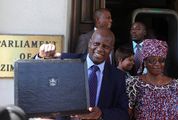
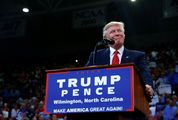
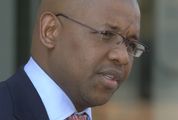





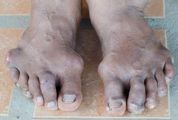
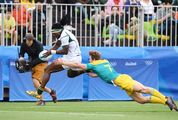

 News and views on the death, and life, of former president Nelson Mandela, with tributes and photographs
News and views on the death, and life, of former president Nelson Mandela, with tributes and photographs





